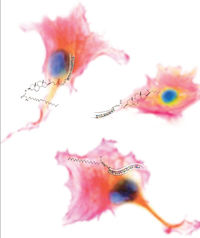Increased Funding for Life Sciences and Strong Industrial Partnerships Crucial to Develop Knowledge-based Economy in Europe
According to Frost & Sulliva, Europeans have become increasingly optimistic about life science and biotechnology research in recent years. This is due to significant opportunities offered by life sciences and biotechnology in healthcare applications. Underpinned by these trends, Europe is witnessing several changes in the funding mechanisms to ensure proper utilisation of funds for life sciences research projects.
In recent years, basic life sciences research has witnessed unprecedented advances, notes Frost & Sullivan Industry Analyst Sylvia Miriyam Findlay in a new analysis on Life Sciences Funding in Europe (2006) Phase I. The human genome project, omics research and the transition towards integrating systems biology will initiate a paradigm shift in the European life sciences funding landscape.
The European Commission has undertaken several initiatives to exploit growth opportunities in the life sciences and biotechnology sector. The increasing trend of support for research in the areas of life sciences and biotechnology has been reflected in the implementation of the Sixth Framework Programme (FP6). This programme aims to foster competitiveness, innovation and scientific excellence through integration and coordination of research efforts at all levels.
While Europe possesses a robust scientific base, harnessing the full potential of life sciences and biotechnology is essential. To this end, manpower will need to be channeled effectively to optimise the benefits of the life sciences and biotechnological revolution.
Moreover, funding challenges obstruct the move towards making Europe a knowledge-based economy. The diverse nature of funding efforts in Europe complicates the ultimate aim of weaving a seamless fabric of a unified research community across the region.
Improper consolidation and channeling of various public funds is the primary issue confronting life sciences funding, explains Ms. Findlay. Hence, efficient utilisation of funds and heightened public involvement is of critical importance. A constructive political and societal collaboration is vital to increase the involvement of public investment for basic research in Europe.
Basic research funding needs to focus primarily on the integration of research activities at a pan-European level. In addition, incubatory researches across Europe have to be incorporated in the funding agenda. Such centres of innovation hold immense potential for innovations in life sciences.
While the European knowledge base is immense, it is inefficient in exploiting research outcomes. This highlights the importance of the increased participation of small and medium-sized enterprises (SME). The European Commission has taken various initiatives to increase SME participation. Strong industrial partnerships are the key to maximise knowledge and expertise, which will result in innovation that can create a knowledge-based economy in Europe.
If you are interested in a virtual brochure, which provides manufacturers, end users, and other industry participants with an overview of the latest analysis of the Life Sciences Funding in Europe (2006)- Phase I (M05F- 52), send an e-mail to Radhika Menon Theodore - Corporate Communications at rmtherodore@frost.com, using the 'Contact' button below.
Most read news
Organizations
Other news from the department business & finance

Get the life science industry in your inbox
By submitting this form you agree that LUMITOS AG will send you the newsletter(s) selected above by email. Your data will not be passed on to third parties. Your data will be stored and processed in accordance with our data protection regulations. LUMITOS may contact you by email for the purpose of advertising or market and opinion surveys. You can revoke your consent at any time without giving reasons to LUMITOS AG, Ernst-Augustin-Str. 2, 12489 Berlin, Germany or by e-mail at revoke@lumitos.com with effect for the future. In addition, each email contains a link to unsubscribe from the corresponding newsletter.




















































